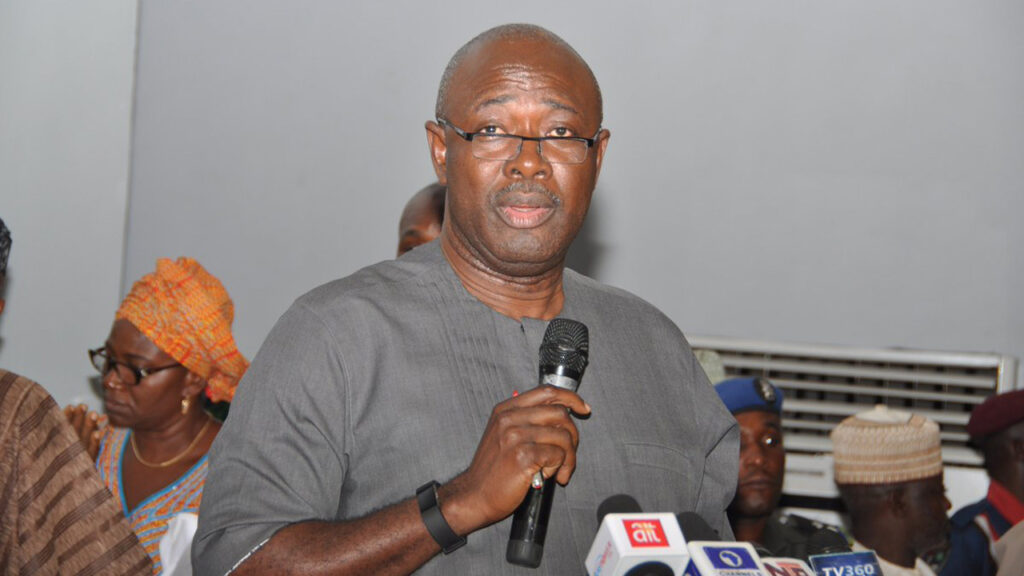Minister of State for Petroleum Resources (Oil), Heineken Lokpobiri, has assured that International Oil Companies (IOCs) were not divesting from Nigeria but were rather moving from onshore and shallow waters to offshore which requires more investment.
Lokpobiri gave this assurance at the opening session of the 7th Nigeria International Energy Summit (NIES) 2024 in Abuja on Tuesday.
LEADERSHIP reports that the minister’s position is notwithstanding a 69 per cent decline in investments in Nigeria’s oil and gas sector in the last five years.
“I want to assure you that no IOC is leaving Nigeria, they are only leaving onshore and shallow waters assets for offshore,” he stressed.
According to him, the divestment of onshore assets by some IOCs is a win-win situation “as the IOCs are making further investments in the deep offshore thereby making room for indigenous companies to develop capacity within the onshore and shallow waters space. It is imperative to note that we are strategically managing the divestment processes.”
He stated further: “Our commitment to enhancing our crude oil reserves and production is unwavering, and we are actively exploring innovative solutions to attract investment, optimise operations, and foster sustainable growth. We are open for business and ready to welcome your investments.”
The minister admitted, however, that in comparison to the global decline of investments in the oil and gas industry between 2017 to 2022, investments in Nigeria declined by 69 per cent when compared to the 28 per cent global average decline.
He said, “The capital investment to reserve ratio shows the amount of capital deployed to a country’s available reserves. Nigeria has an abysmal capital investment-to-reserve ratio of five per cent compared to Angola (46 per cent), Brazil (115 per cent), Mozambique (92 per cent) and Guyana (617 per cent).
“The window for attracting new investments and exploring our vast reserves is fast narrowing. If the global energy transition accelerates, approximately 60 per cent of Nigeria’s reserves could be uncompetitive to produce.”
He said there were many licences with proven reserves not being optimised in the hands of IOCs, NOCs, and others.
“In line with Mr. President’s Renewed Hope agenda, we are working on changing this narrative.
“One of the easiest ways to solve the current foreign exchange challenges faced in the country is to aggressively increase production which will in turn bring in additional revenue for the government.
“The additional crude produced will serve as a feedstock to our state-owned, private, and modular refineries, thereby changing the narrative of Nigeria being a major refined petroleum products importer to an export hub. The time to act is now. We need to take bold and decisive actions to harness the vast hydrocarbon resources,” he said.
Lokpobiri decried the clamour for nations to stop investments in fossil fuels without commensurate action, noting that no country was slowing down fossil fuel exploration and production.
He recalled that only recently, the UK government awarded over 100 licences for exploration in the North Sea; the United States of America being the highest producer of oil today is also ramping up production, noting that no country was reducing production.
“As a government, ours is to provide a business-friendly and enabling environment for potential investors. This is what we are doing, and we are resolute in removing all bottlenecks, disincentives, and impediments preventing inflows of such investment. This is the whole essence of the PIA 2021.
“As we acknowledge that additional financing is crucial for growth in the oil and gas industry, it is imperative that we pursue the dream of realising the Africa Energy Bank, which will have an initial capital base of $5 billion (within 5 years), and a gross asset base exceeding $120 billion by 2028.
“We are taking a multi-faceted approach to boost the refining capacity in Nigeria as part of the ways to address the challenges associated with energy security. These initiatives aim to reduce dependency on imported refined products, reduce the pressure on foreign exchange, and enhance the country’s ability to meet its domestic energy needs,” he stated.
The key strategy in this direction, according to him, included revitalising government refineries and encouraging private sector investment like Dangote, BUA, and numerous modular refineries.
Source- The Leadership Newspaper.

